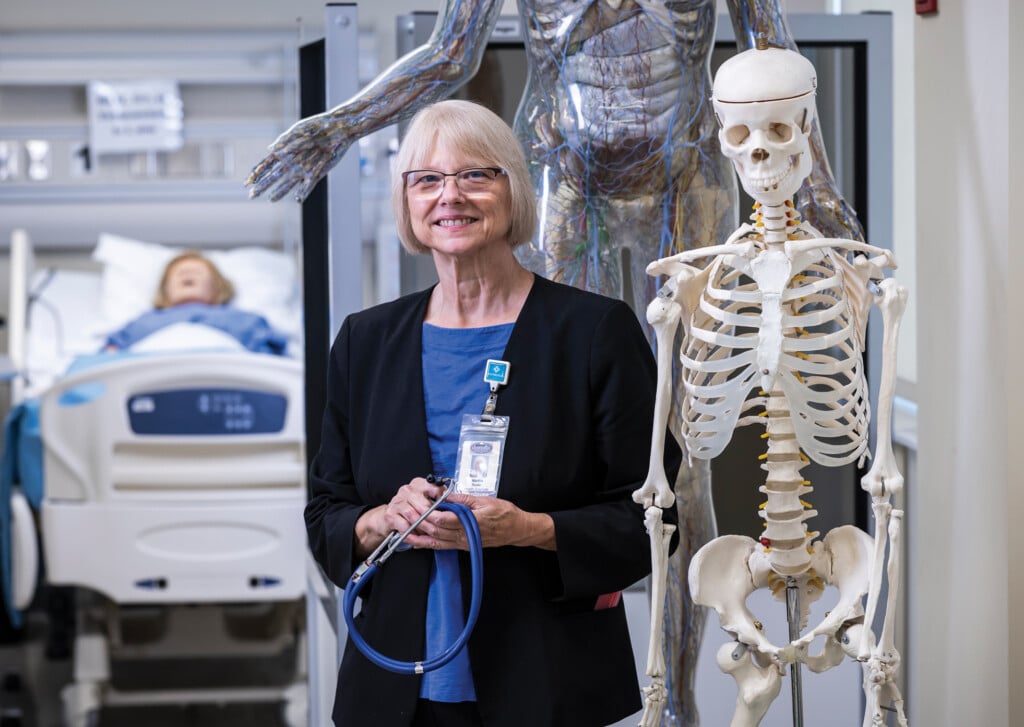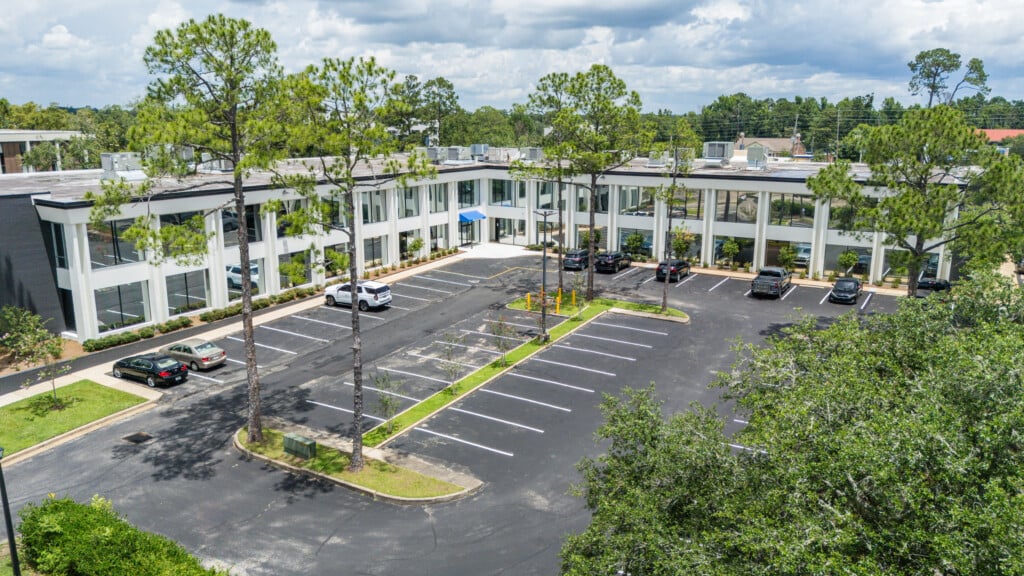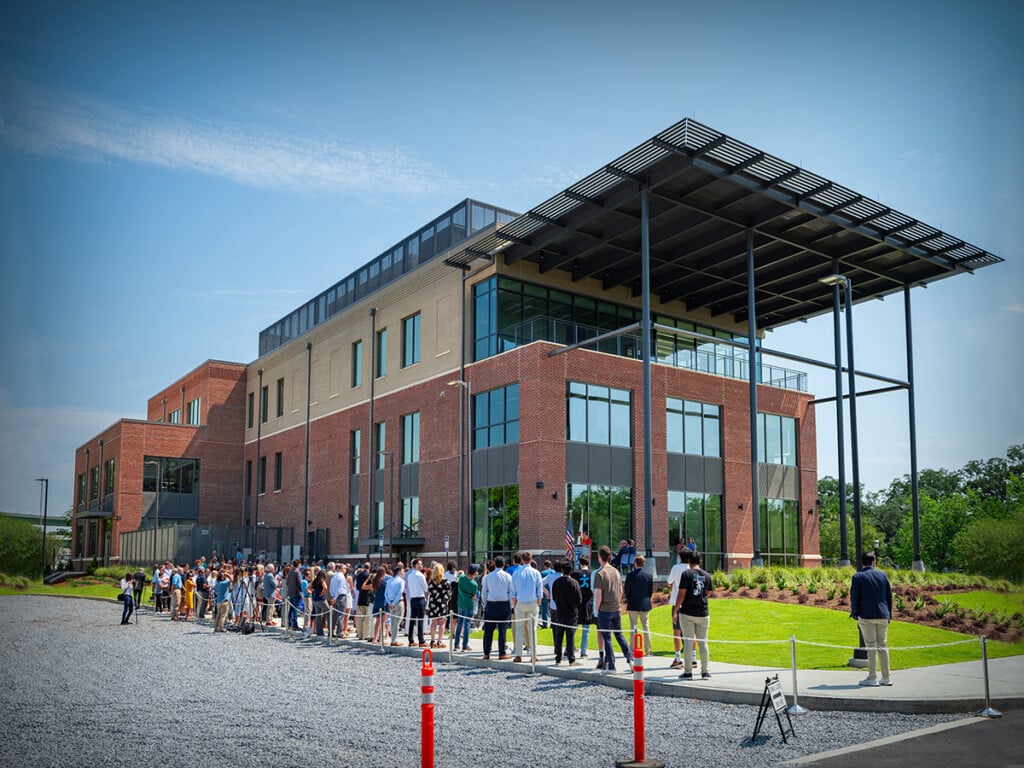Dr. Martha Ruder
Family nurse practitioner and associate degree nursing program coordinator

Dr. Martha Ruder balances many significant roles, notably as a family nurse practitioner and coordinator of the associate’s degree nursing program at Gulf Coast State College in Panama City, Florida.
“Nurses are used to being busy,” said Dr. Ruder.
“I became used to this pace when I was in my nurse practitioner program at Florida State. I was working full time and fulfilling clinical hours, so I quickly fell into the habit of scheduling and carving out blocks of time.”
In 2014, Dr. Ruder graduated from Florida State University with her doctorate of nursing practice; however, her teaching journey was already well underway, sparked by her pursuit of a career in nursing. As a program coordinator and nurse practitioner, Dr. Ruder’s roles are bound together through perseverance, resilience and patience.
“In the fields of nursing and education, you have to accept that things don’t always turn out the way you plan. Circumstances arise. Things happen, but in these professions, you need to take the time to listen to others, focus on the issues at hand and keep working to facilitate nursing education,” she shared.

Dr. Ruder became a full-time instructor in 1996 teaching maternal-newborn nursing, but she now oversees the nursing program for GCSC as the coordinator. Photo by Mike Fender
After graduating with a bachelor’s degree from the School of Nursing at the University of Maryland Baltimore in 1979 and obtaining her RN license,
Dr. Ruder worked in a local hospital’s postpartum unit. There, she stepped into the role of teaching parents what to expect in birthing classes.
“My experience in the postpartum unit really made me realize how much I liked teaching,” said Dr. Ruder.
So, in 1986, after graduating with her master’s degree in nursing education, she began teaching nursing part time as an adjunct in pediatrics and became a full-time instructor in 1996 of maternal-newborn nursing.
“As a nurse, you become a teacher, too. You teach your patients a lot of things, from what medication to take and how to navigate wellness,” explained Dr. Ruder. “Teaching is a natural extension of nursing.”
In 2007, Dr. Ruder advanced to the role of assistant coordinator at GCSC and rose to coordinator in 2012. Harnessing her extensive experience in teaching and nursing education, Dr. Ruder has been instrumental in strengthening the foundation of emerging medical professionals through comprehensive training, education and resources. As the coordinator of the associate’s degree nursing program, Dr. Ruder has played a key role in the remarkably high pass rates on the National Council Licensure Examination, exceeding the statewide pass rate by a whopping 13% — raising it to 87% at GCSC versus 74% throughout the state. This achievement is a testament to Dr. Ruder’s commitment to excellence in the ever-growing nursing field.
“At Gulf Coast, we focus on remediation,” said Dr. Ruder. “So, if a student isn’t doing well with testing, we look at the information, reteach and retest until they fully understand the material. We have a dedicated person who works with students. We call her the student success mentor, and she works to help students succeed in the program.”
Recently, in May 2024, Dr. Ruder received word that she and her colleagues secured a $24 million grant for an Interprofessional Education Simulation Training Center from Triumph Gulf Coast, Inc. — an organization responsible for administering funds from the $1.5 billion awarded to the Sunshine State by BP for compensation after the Deepwater Horizon oil spill in the Gulf of Mexico in 2010.
“We will be implementing this grant in the fall,” explained Dr. Ruder, “notably an interprofessional simulation building for all health sciences, but nursing will take the lead because nursing is the biggest population in the health science field here.”
Dr. Ruder revealed that GCSC plans to build this program from the ground up, incorporating cutting-edge, immersive simulation technology. This will enable students to wear VG goggles and virtually step into a hospital setting to prepare medication and interpret doctors’ orders. Thanks to this sizable grant, enrollment capacity has surged, thereby enhancing student readiness for clinical practice.
As Dr. Ruder looks toward the future, she sees a significant transition on the horizon. In three years, she plans to step away from her current coordinator position at GCSC and lean into her nurse practitioner role at the Emerald Coast Bay Behavioral Hospital. At this inpatient psychiatric facility, Dr. Ruder provides primary care for patients, demonstrating her unwavering commitment to the field of health.
“I’m not ready to fully retire,” admitted Dr. Ruder. “I’m so used to working, I can’t imagine just sitting at home. So, this isn’t a full stop for me, just a stop in academia.”

